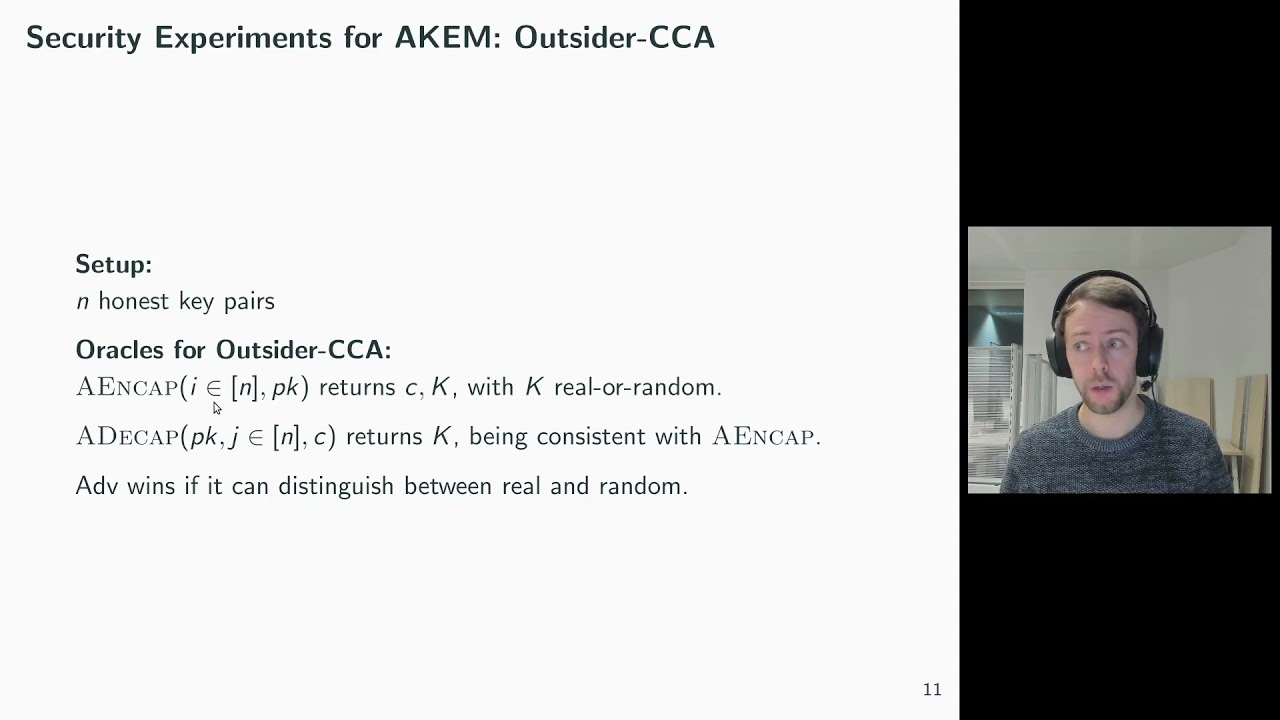Welcome to the resource topic for 2020/1499
Title:
Analysing the HPKE Standard
Authors: Joël Alwen, Bruno Blanchet, Eduard Hauck, Eike Kiltz, Benjamin Lipp, Doreen Riepel
Abstract:The Hybrid Public Key Encryption (HPKE) scheme is an emerging standard currently under consideration by the Crypto Forum Research Group (CFRG) of the IETF as a candidate for formal approval. Of the four modes of HPKE, we analyse the authenticated mode HPKE_Auth in its single-shot encryption form as it contains what is, arguably, the most novel part of HPKE and has applications to other upcoming standards such as MLS. HPKE_Auth’s intended application domain is captured by a new primitive which we call Authenticated Public Key Encryption (APKE). We provide syntax and security definitions for APKE schemes, as well as for the related Authenticated Key Encapsulation Mechanisms (AKEMs). We prove security of the AKEM scheme DH-AKEM underlying HPKE_Auth based on the Gap Diffie-Hellman assumption and provide general AKEM/DEM composition theorems with which to argue about HPKE_Auth’s security. To this end, we also formally analyse HPKE_Auth’s key schedule and key derivation functions. To increase confidence in our results we use the automatic theorem proving tool CryptoVerif. All our bounds are quantitative and we discuss their practical implications for HPKE_Auth. As an independent contribution we propose the new framework of nominal groups that allows us to capture abstract syntactical and security properties of practical elliptic curves, including the Curve25519 and Curve448 based groups (which do not constitute cyclic groups).
ePrint: https://eprint.iacr.org/2020/1499
Talk: https://www.youtube.com/watch?v=ofwZFqRc-xE
Slides: https://iacr.org/submit/files/slides/2021/eurocrypt/eurocrypt2021/8/slides.pdf
See all topics related to this paper.
Feel free to post resources that are related to this paper below.
Example resources include: implementations, explanation materials, talks, slides, links to previous discussions on other websites.
For more information, see the rules for Resource Topics .
